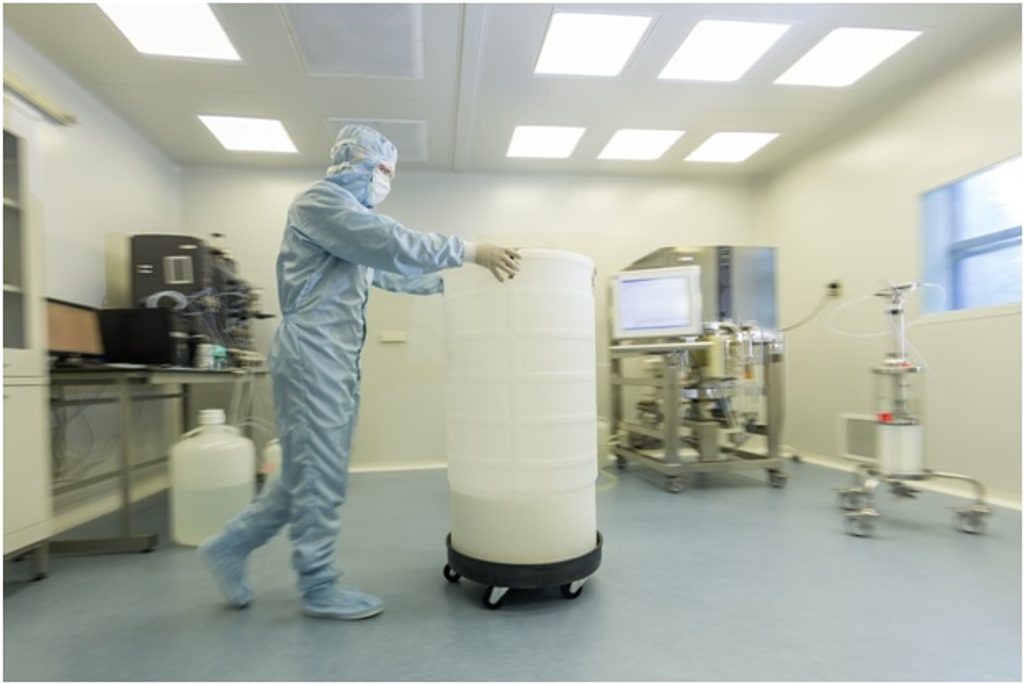Conjugate is beginning studies of new indications for Aurixim in the therapy of autoimmune diseases
Conjugate, a company of ChemRar Group and the resident of the BioMedical Cluster of the Skolkovo Foundation, has announced that it began researching new indications for Aurixim in anti-β-cell therapy of autoimmune diseases. It is the understanding of the role played by β-cell immunity in the inflammatory process and the emergence of opportunities to slow the progression of autoimmune diseases while improving the quality of life for the patients that provided the grounds for initiating the study of new indications for the drug. Aurixim is an improved molecule of rituximab (conjugate), where high efficacy in lowering the level of β-cells is achieved without changing the active part of the rituximab molecule. The latter has more than 20 years of successful experience of use around the globe, and demonstrates high efficacy and a satisfactory safety profile in treatment of autoimmune diseases (especially rheumatoid arthritis).
A co-investor of the project was BioIntegrator, where a full production cycle of Auxirim for cultivation and conjugation of monoclonal antibodies is carried out.

Aurixim production technology previously developed by BioIntegrator and conducted pre-clinical studies for safety evaluation, including the acute and chronic toxicity in rats, pharmacokinetics in monkeys, etc., on the one hand, and the change in the pool of β-cells (β-lymphocytes depletion) in different species of animals on the other hand, allow us to hope for further successful clinical trials in various autoimmune indications.
It is expected that the improved Aurixim formula will be able to use the experience of colleagues conducting similar research of the same CD-20 biotarget, who so far failed to prove the advantages of the studied candidates over rituximab. In particular, ofatumumab did not show the expected efficacy in treatment of diffuse large β-cell lymphoma [1], and the development of ocrelizumab was stopped due to death of patients with rheumatoid arthritis in a phase 3 clinical trial [2].
“It is important to note that we currently see the beginning of a new stage in the development of Russian pharmaceutical industry which includes creation of proprietary, innovative, and clinically proven products. The Russian pharmaceutical manufacturers have accumulated sufficient expertise and capacity to move from generics to innovative import substitution, and this is one of the most important objectives of the state program “Development of Pharmaceutical and Medical Industry for 2013–2020”, said Yuri Krasnenkov, the CEO of Conjugate.
In 2017 Conjugate plans to complete current pre-clinical studies aimed at confirming the mechanisms of action and chronic toxicity of the drug in monkeys. This will allow to move to the clinical part of the project in 2018, which will include phase 1–3 trials involving patients. The company plans to test the drug for several autoimmune indications. If successful, Aurixim will appear on the Russian market in 2022.
Source:
- No Difference in Efficacy Between Ofatumumab, Rituximab in DLBCL. http://www.cancertherapyadvisor.com/lymphoma/lymphoma-dlbcl-difference-efficacy-ofatumumab-rituximab/article/629767/
- Ocrelizumab — Top 10 Phase III Failures. http://www.fiercebiotech.com/special-report/ocrelizumab-top-10-phase-iii-failures